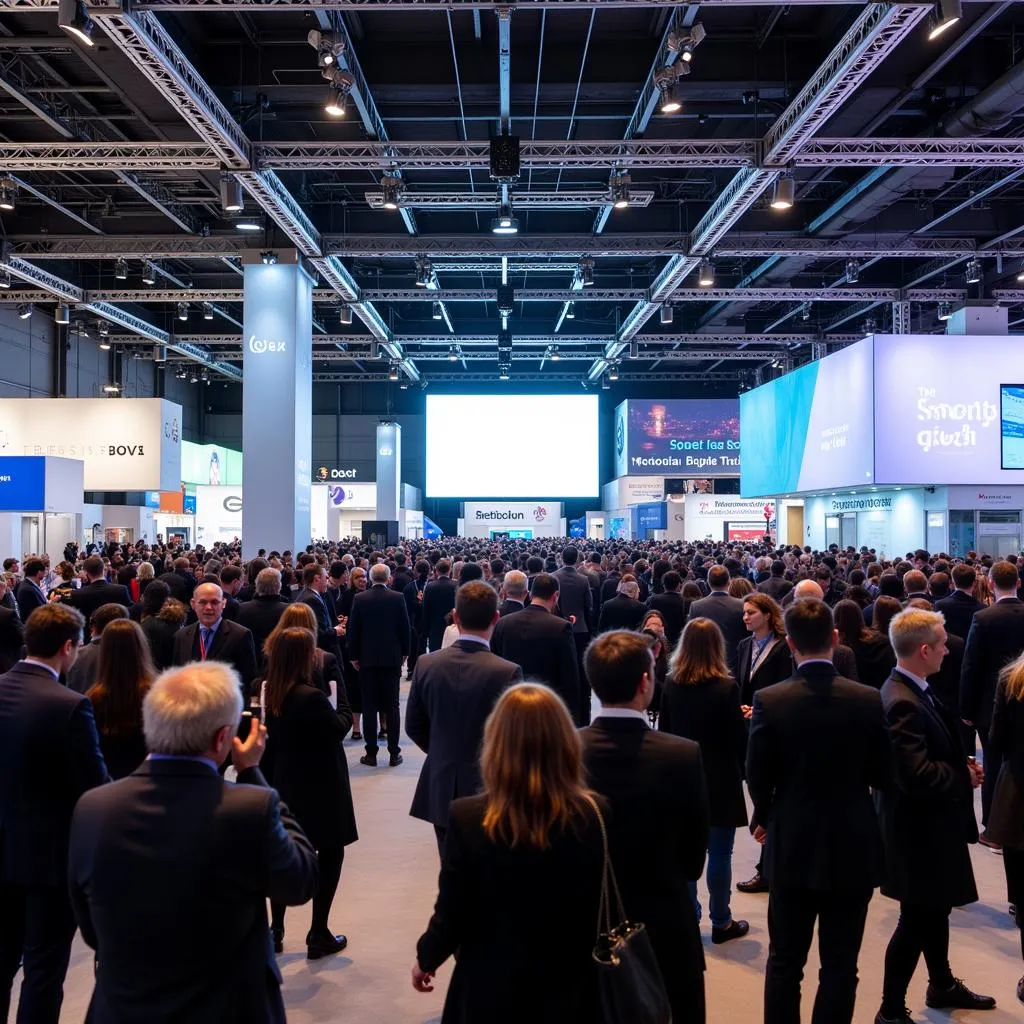Barcelona, a vibrant city known for its rich history and stunning architecture, took a bold step towards a smarter future in 2018 by hosting the Smart City Expo World Congress (SCEWC). This event, a global platform for showcasing the latest innovations in urban technology and sustainability, attracted over 900 exhibitors and 40,000 attendees from all corners of the world.
The SCEWC 2018 served as a catalyst for discussion and collaboration, bringing together experts, policymakers, and innovators to explore the challenges and opportunities of urban transformation. The focus was on how technology could be leveraged to create more sustainable, efficient, and inclusive cities, tackling pressing issues such as climate change, congestion, and social inequality.
A Glimpse into Barcelona’s Smart City Initiatives
Barcelona itself has been a pioneer in the smart city movement, actively implementing various initiatives to improve the quality of life for its residents. The city’s commitment to sustainability is evident in its extensive network of bike paths, public transportation systems, and renewable energy sources.
The SCEWC 2018 offered a platform to showcase Barcelona’s progress and showcase the city as a model for others to follow. Visitors were able to see firsthand how technology is being used to optimize traffic flow, manage waste, and improve public safety.
Smart Lighting: Illuminating Efficiency
One notable highlight of Barcelona’s smart city initiatives is its smart lighting system. By integrating sensors and connectivity, the city’s streetlights are able to adjust their brightness based on real-time conditions, reducing energy consumption and enhancing public safety.
“Barcelona’s smart lighting system is a prime example of how technology can be used to optimize resource allocation and improve the overall well-being of a city,” said Dr. Maria Rodriguez, a renowned urban planning expert.
Key Themes and Innovations at SCEWC 2018
The SCEWC 2018 explored a wide range of themes related to urban innovation, highlighting the latest advancements in fields such as:
- Sustainable Mobility: From electric vehicles and autonomous transportation systems to smart traffic management solutions, the event explored how to create more efficient and environmentally friendly mobility options.
- Data-Driven Decision Making: The use of big data and analytics was central to many discussions, emphasizing how cities can leverage data to improve service delivery, enhance infrastructure, and optimize resource allocation.
- Citizen Engagement and Participation: The event also highlighted the importance of citizen involvement in shaping the future of smart cities. By empowering residents to provide feedback and participate in decision-making processes, cities can ensure that their development aligns with community needs.
- Digital Infrastructure and Connectivity: The availability of reliable and accessible digital infrastructure is crucial for a thriving smart city. The SCEWC 2018 explored the latest developments in 5G connectivity, high-speed internet, and the Internet of Things (IoT).
The Impact of SCEWC 2018 on the Global Smart City Landscape
The SCEWC 2018 served as a catalyst for the global smart city movement, inspiring cities around the world to adopt innovative technologies and embrace sustainable development practices.
The event provided a platform for knowledge sharing, showcasing the latest advancements in urban technology and connecting cities with leading solution providers. The SCEWC 2018 fostered a collaborative environment that empowered cities to learn from each other, share best practices, and accelerate the adoption of smart city solutions.
FAQs (Frequently Asked Questions)
1. What are the benefits of a smart city?
Smart cities offer numerous benefits, including improved efficiency, reduced environmental impact, enhanced quality of life, and greater economic competitiveness.
2. How can technology be used to improve public safety in a city?
Technology can be used to enhance public safety through smart surveillance systems, predictive policing tools, and emergency response systems.
3. What are some examples of sustainable mobility solutions?
Sustainable mobility solutions include electric vehicles, autonomous vehicles, bike-sharing programs, and public transportation systems.
4. How can citizens participate in the development of smart cities?
Citizens can participate through online surveys, community forums, and engagement platforms to provide feedback and shape city development.
5. What are some challenges facing smart city initiatives?
Challenges include data privacy concerns, ethical considerations, infrastructure costs, and digital divides.
6. What are the future trends in the smart city movement?
Future trends include the increasing use of artificial intelligence (AI), the integration of blockchain technology, and the development of smart city ecosystems.
7. How can I learn more about smart cities?
You can learn more about smart cities through online resources, industry publications, and events like the Smart City Expo World Congress.
This is just a glimpse into the exciting world of smart cities. As technology continues to evolve and urban challenges persist, the SCEWC and other similar events will remain crucial platforms for fostering innovation, collaboration, and a shared vision for a more sustainable and equitable future.
